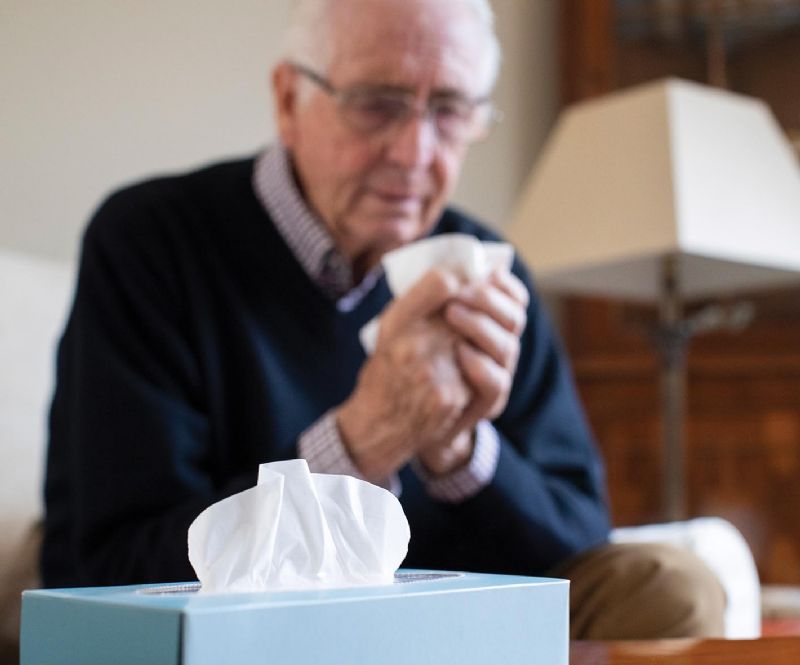- Home
- News, Articles & Reviews
- All Health & Beauty
- Looking Good, Feeling Great
- Medical Health
- Mirror Mirror on the Wall
- Style & Fashion
- General
- Vintage & Sustainable Fashion
We are hiring! Please click here to join our growing magazine delivery team in Gloucestershire!
Areas
Health & Beauty
Archive

Managing the flu
All Areas > Health & Beauty > Medical Health
Author: Kirsty Lilley, Posted: Monday, 18th December 2023, 09:00
Flu, also known as influenza, is caused by a virus that infects the respiratory tract comprised of the nose, throat and lungs. It shares many of the same symptoms as the common cold, but with some marked differences.
The most telling difference is the speed with which the flu comes on, with bodily aches and pains and a high temperature that can leave you feeling low for some weeks. The flu is caught by breathing in infected droplets of air, which have been breathed out via coughing or sneezing by another person who is already infected.
The droplets can also land on hard surfaces and survive for around 24 hours, which means it is a good idea to wash your hands regularly to avoid picking up the virus this way.
Vaccinations
Unfortunately, viruses are not able to be treated with antibiotics, but there are ways to ease the symptoms. It is also important to ensure you take up the option to have the flu vaccination where appropriate, especially if you have other conditions which make you more vulnerable to effects of the flu such as heart problems, kidney or liver disease, or a lower immunity due to disease or treatment.
In the UK, the flu vaccine is given to people who are 65 and over, including those who will be 65 by 31st March 2024, have certain health conditions, are pregnant or are in long term residential care. Check on the NHS website for other qualifying criteria and when children can receive the vaccine.
Symptoms
Symptoms of flu can come on very quickly and can include a sudden high temperature, an aching body, a headache, sore throat, and dry cough. Symptoms in children are similar, but they can also complain of earache and may be noticeably more lethargic than usual.
Ways to help yourself
• Get plenty of rest and keep warm.
• Drink lots of water and stay hydrated.
• Take paracetamol or ibuprofen to keep aches and pains at bay and reduce your temperature.
Remember to check for contraindications with any current medications you take and remember that many over-the-counter flu remedies contain paracetamol. It is important not to exceed the recommended dose of any medication.
Try to stay at home and, if possible, avoid contact with others, especially those with health conditions which may make them vulnerable.
Prevention
There are some measures you can take to minimise the risk of catching the flu, for yourself and others. Be careful when you encounter someone who has the flu – wash your hands with antibacterial soap often and avoid touching your nose or eyes, as the virus can easily enter the body this way.
Use antibacterial spray to wash down hard surfaces, especially in areas which are highly communal – door handles, kitchen surfaces and living areas, for example. Take care to cover your nose and mouth when you sneeze with a disposable tissue and bin it immediately.
If you are concerned, contact your GP and remember that your pharmacist is also a good source of information and support.Copyright © 2025 The Local Answer Limited.
Unauthorized use and/or duplication of this material without express and written permission from this site's author and/or owner is strictly prohibited. Excerpts and links may be used, provided that full and clear credit is given to The Local Answer Limited and thelocalanswer.co.uk with appropriate and specific direction to the original content.More articles you may be interested in...


© 2025 The Local Answer Limited - Registered in England and Wales - Company No. 06929408
Unit H, Churchill Industrial Estate, Churchill Road, Leckhampton, Cheltenham, GL53 7EG - VAT Registration No. 975613000You are leaving the TLA website...
You are now leaving the TLA website and are going to a website that is not operated by us. The Local Answer are not responsible for the content or availability of linked sites, and cannot accept liability if the linked site has been compromised and contains unsuitable images or other content. If you wish to proceed, please click the "Continue" button below:




